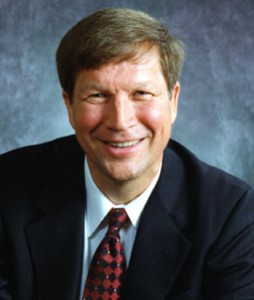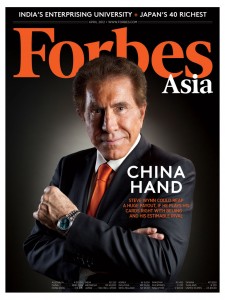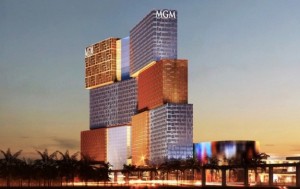Ohio cities are trying to use casino revenues to keep pace with Gov. John Kasich‘s austerity regime — and partly succeeding. “It is an important part of the budget, particularly  when you look at the fact the state has eliminated almost $13 million in local government funds to the city of Toledo. Thank God we at least had the casino,” said Finance Director George Sarantou. Still, the tax revenues the casinos are bringing in — like Hollywood Toledo‘s $5.6 million — can’t keep pace with the state’s cutbacks. State grants to Toledo have fallen from $21 million in 2009 to $8 million.
when you look at the fact the state has eliminated almost $13 million in local government funds to the city of Toledo. Thank God we at least had the casino,” said Finance Director George Sarantou. Still, the tax revenues the casinos are bringing in — like Hollywood Toledo‘s $5.6 million — can’t keep pace with the state’s cutbacks. State grants to Toledo have fallen from $21 million in 2009 to $8 million.
Blame some of it, ironically, on casino proponents. Penn National Gaming, shamelessly exaggerated revenue projections, predicted a $651 million windfall. The Department of Taxation and Office of Budget & Management was scarcely more conservative, predicting $643 million. Instead, casinos and racinos generated $272.5 million in 2013 and $267.5 million last year, even during a period of 36% growth. One of the best arguments opponents have against casinos is what we call the Penn National Effect: the overhyping of revenue expectations, which sets cities like Toledo up for disappointment. Lucas County Commissioner Pete Gerken took the right approach. “We assumed right off the top the state was overestimating their numbers. We were much more conservative in our expectations.”
 Lucas County lowballs its tax-collection estimates, so each year has been a happy surprise. For example, in 2013, a $2.5 million levy well outstripped a $1.5 million projection.
Lucas County lowballs its tax-collection estimates, so each year has been a happy surprise. For example, in 2013, a $2.5 million levy well outstripped a $1.5 million projection.
Penn National’s Bob Tenenbaum tried to blame his own company’s racinos for the egregious shortfall. “Those projections were made in May of 2009, before there was any discussion of the racinos. So in our view, you can’t really go by those projections because the landscape changed so dramatically,” he argued weakly, adding that the Buckeye State was still “a developing market.” It will have to develop exponentially to match Penn’s own puffery. Penn still thinks Ohio could be a $2 billion market in three years, requiring play to grow another 25%-plus. I’m not surprised at that assumption, considering the amount of ass-covering Penn has to do.
* Macao did another belly-flop last month, down 39% from April 2014. A decline of 11% from last March suggests that the chasm is only deepening for the gambling enclave. On the positive side, “healthy traffic across the border crossings and solid gaming volume trends” have been reported for early May. Sands China led all competitors in market share of table play, with 24%. Wynn Macau and MGM Grand Paradise brought up the rear, with 12% and 9%, respectively, behind the three Chinese concessionaires.
 The precipitous slide in Macanese casino revenues is causing some to question the $20 billion that operators have on the table in the form of new construction. Steve Wynn, queried recently on the prudence of finishing Wynn Paradise, gave short shrift to that kind of thinking, saying, “Hold on. You can’t slow it down. It’s being finished and there’s bank obligations. You can’t slow it down in Macao. The building is sitting there. The skin is on. They’re getting ready to fill the lake. Staff is hired.” But analysts Chris Snow and Nicolas Rios wrote, “the melancholy in Steve Wynn’s voice harkened back to the dark days surrounding the Encore open in Las Vegas,” another landmark low point for the company.
The precipitous slide in Macanese casino revenues is causing some to question the $20 billion that operators have on the table in the form of new construction. Steve Wynn, queried recently on the prudence of finishing Wynn Paradise, gave short shrift to that kind of thinking, saying, “Hold on. You can’t slow it down. It’s being finished and there’s bank obligations. You can’t slow it down in Macao. The building is sitting there. The skin is on. They’re getting ready to fill the lake. Staff is hired.” But analysts Chris Snow and Nicolas Rios wrote, “the melancholy in Steve Wynn’s voice harkened back to the dark days surrounding the Encore open in Las Vegas,” another landmark low point for the company.
However, when Chinese President Xi Jinping is talking about gambling as the cause of “deep-seated problems,” you can see why this would case of what Wynn calls “uncertainty under the circumstances.” Las Vegas Sands got hammered, its net profit down 34% thanks to Macao, where mass-market spending was off 21% and net profit cratered. This made Sheldon Adelson sound downright gloomy: “We’re sailing in uncharted waters, and I hope we don’t sink like that boat off in the Mediterranean.”
But others take a bullish, long-term view. “We are preparing for a 100 percent increase in share prices within the next three years,” said Matthew Ossolinski, of eponymous Ossolinski Holdings. Hard to believe, but Macao has only tapped 2% of the Chinese  populace to date, a mass market that Adelson is particularly well-positioned to reap. (If locals chafe at current tourism levels, how will they feel when the other 98% is turned loose?) If supply really does drive demand in China, then Melco Crown Entertainment is in the catbird seat. It’s opening Studio City later this year and has no fewer than three resorts scheduled for 2016 debuts.
populace to date, a mass market that Adelson is particularly well-positioned to reap. (If locals chafe at current tourism levels, how will they feel when the other 98% is turned loose?) If supply really does drive demand in China, then Melco Crown Entertainment is in the catbird seat. It’s opening Studio City later this year and has no fewer than three resorts scheduled for 2016 debuts.
Hong Kong‘s stock market is betting that the worst will soon be behind Macao, with shares of Galaxy Entertainment, Wynn Macau and Sands China all nudging upward. However, Sanford Bernstein analyst Vitaly Umansky cautioned that the openings of Phase II of Galaxy Macau and of Galaxy Broadway would be no “magic bullet.” The local government is being parsimonious in its table-game allocations, giving only 150 to Galaxy Macau, while Broadway will be filled out with 30 to 40 table games cannibalized from an older property.
An even stronger positive sign on the horizon is a relaxation of monetary policy, which should put more cash in circulation. “Lowering reserve requirements signals it [China’s  economy] has entered a monetary easing cycle, which may be a positive catalyst for China’s economy, and thus bodes well for Macau’s VIP economy recovery,” wrote the four authors of the study, published in the Asia Pacific Journal of Marketing & Logistics. While the authors believe that the superheated days of Macao’s casino industry are gone, never to return, they project better days over the long haul. They add that salvation will partly come from mass-market players, a clientele that brings a higher profit margin to town.
economy] has entered a monetary easing cycle, which may be a positive catalyst for China’s economy, and thus bodes well for Macau’s VIP economy recovery,” wrote the four authors of the study, published in the Asia Pacific Journal of Marketing & Logistics. While the authors believe that the superheated days of Macao’s casino industry are gone, never to return, they project better days over the long haul. They add that salvation will partly come from mass-market players, a clientele that brings a higher profit margin to town.
But the industry’s not out of the woods. The study outlines several challenges to prosperity, ranging from intramural competition to the effects of the smoking ban. As for labor, locals should brace themselves for more guest workers, since the government is holding job fairs as far away as Manila. “It is believed that there will be new rules to attract more and more talent and valued labour from all over the world to support further development,” the study reads. That’s not likely to play well at home, even with better times ahead.

